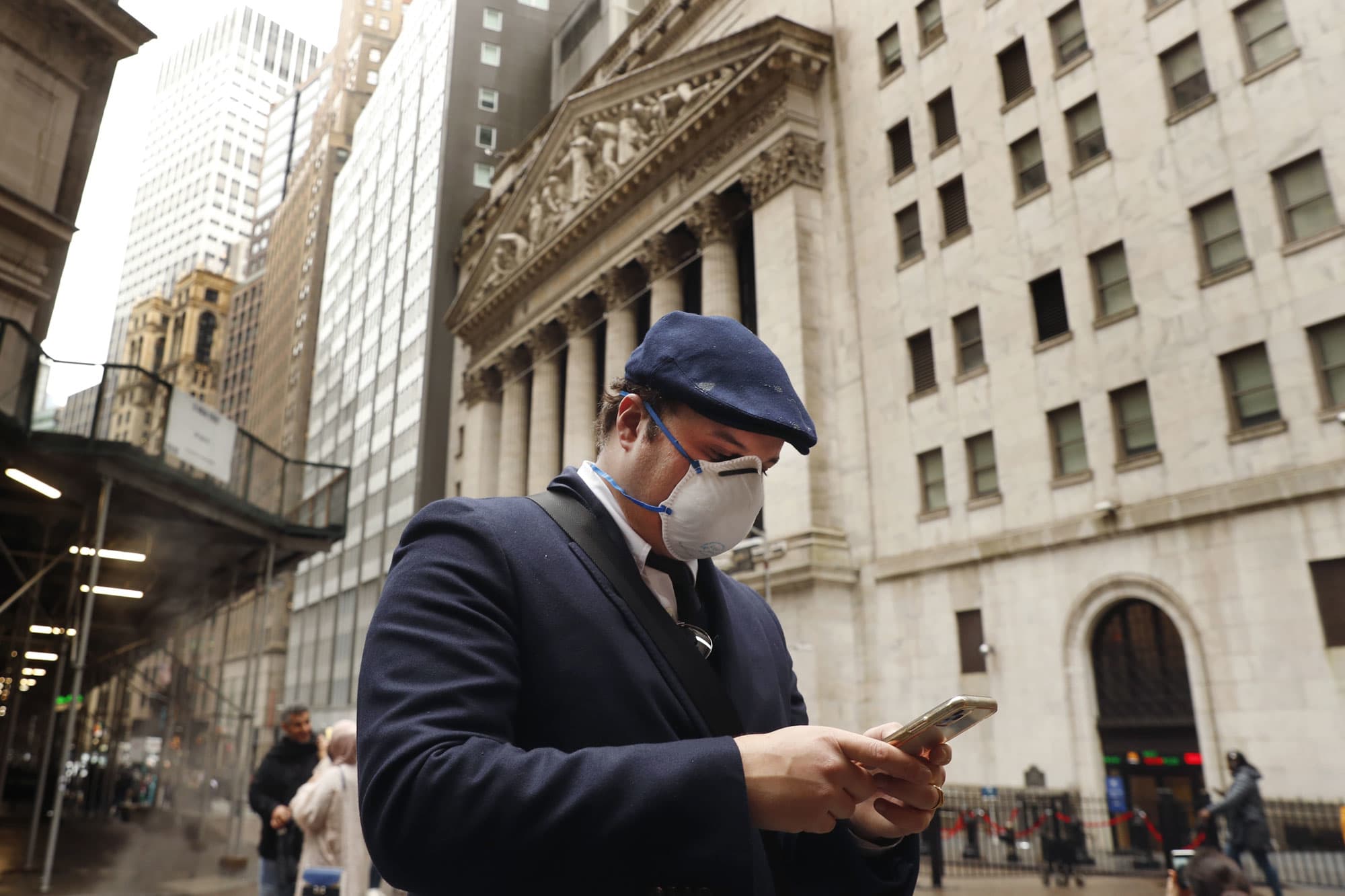
The White House’s prediction of the potential coronavirus death toll was a “rude awakening” for a lot of investors, triggering a sell-off on Wall Street after signs of hope the week prior, CNBC’s Jim Cramer said.
Days after signing a massive economic relief package that bolstered buying on the market, President Donald Trump on Tuesday warned that the next two weeks will be “very, very painful.”
Officials predict between 100,000 and 240,000 people diagnosed with COVID-19 could die in the U.S., and investors reacted negatively, sending the major stock averages down more than 4.4% on the first trading day of the new quarter.
“If you’ve been following the experts, then a potential death toll in the hundreds of thousands might not have surprised you, but for a lot of investors it was a rude awakening,” the “Mad Money” host said. “I can’t blame anyone for selling after that miserable first quarter with very little good news on any front in the battle against COVID.”
The U.S. is fighting a two-front war to stop the spread of the deadly virus and fend off economic fallout of those efforts. Even with the $2.2 trillion stimulus plan to inject money into the pockets of individuals and businesses, consumer demand will not pick back up until the health crisis is mitigated and millions of people go back to work, Cramer said.
Once the spread can be slowed and the pandemic can be put to a close, stocks will be attractive yet again. The market will “turn into a rocket ship” and investors “can’t wait for the ideal moment to buy,” Cramer said.
“You have to pick up stocks gradually on the way down,” he said. “Once we beat this virus, we could have a much bigger rally than the one we just had last week, but we’re not there yet.”
The S&P 500 rallied more than 17% March 24-26, its first positive three-day stretch since the middle of February.
“I’ll get more constructive when we give up last week’s gains or when we’re retesting March lows. I think that’s a better time to buy,” Cramer added.
The S&P slid to its lowest point of 2,191.86 on March 23, more than 11% under Wednesday’s close.



